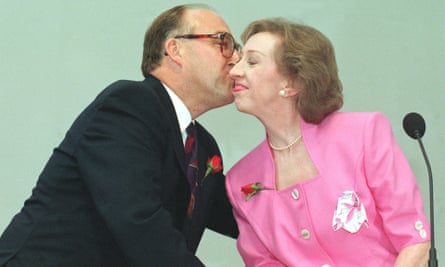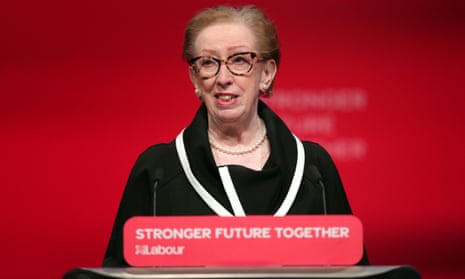Margaret Beckett, Britain’s first female foreign secretary and the first woman to lead the Labour party, is to retire at the next election after nearly four decades as MP for Derby South.
The 79-year-old, who is also Britain’s longest serving female MP, was first elected to the House of Commons to represent Lincoln in 1974 when just 27 MPs were women. There are now 220.
After losing her seat five years later, she was elected by Derby South in 1983 and has been an MP ever since.
After her announcement, she said on Saturday that she continues to have faith in politics, despite the bitterness and violence MPs face in the social media age.

She said she would still advise young women to go into politics, telling Radio 4’s Today programme: “It wouldn’t put me off because what I felt when I was considering being an MP is I think equally true today. If you think things should be changed and you want to have a say in changing them and you don’t have wealth and power, there’s a very limited number of routes that you can use and this is the biggest of them.”
Speaking about her first day at the House of Commons, she said she “vividly” remembers a police officer she knew opening the door and bowing when she arrived and saying: “Welcome in ma’am”. “We both sniggered,” she said.
Years later, in 2006, when then prime minister, Tony Blair, appointed her foreign secretary, she said she continued to be met with resistance because of her gender.
“One of the fairly senior women I knew said to me: ‘I hope you realise there are people in the Foreign Office who don’t think a woman should be foreign secretary’,” she said. “And I’m sure that was right. But I regarded that as their problem rather than mine.”

After the death of John Smith in 1994, Beckett became acting Labour leader. But the party has never elected a woman as leader, while the Conservatives have elected two women to the position.
Asked what the problem was, she said it was luck. “There is so much luck in politics … And it just never was the right person at the right time.”
She said she believed the late Barbara Castle should have been Britain’s first female prime minister, “but it just never was quite the right time”.
Asked whether she believes Keir Starmer could win the next election, she said the British public knows “how to work” the electoral system, citing the 1997 Labour landslide and the 2010 and 2017 hung parliaments. “If they want to, they can move mountains.”
She added: “I’m not saying I always believe in their wisdom, depending on their decision. But I certainly believe in their ability and capacity to make that kind of change if that’s what they decide is needed.”
Starmer paid tribute to Beckett’s tenure, describing her as a “legend of our party”. He tweeted: “As the UK’s first female foreign secretary, and Labour’s first female leader, she is a trailblazer. Margaret, I thank you for everything you’ve given, and achieved.”
The deputy Labour leader, Angela Rayner, said she was an “inspiration”. “So many years of dedication to public service and to better politics. What a woman! And what an inspiration Margaret is to us all.”
